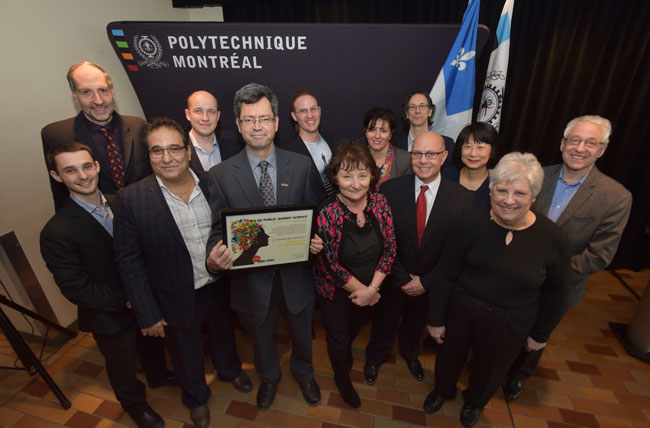
Multidisciplinary research moves the science of chemotherapy delivery forward
In January, Québec Science magazine announced its 10 Discoveries of the Year for 2016, and McGill researchers played key roles in six of them. On March 3, one of these discoveries was awarded Québec Science’s « Decouverte de l’annee 2016 – Prix de Public ». Congratulations to Professor Sylvain Martel of École Polytechnique de Montréal’s Nanrobotics laboratory, and the team of co-investigators from McGill (Drs. Te Vuong, Gerald Batist, Maryam Tabrizian, Nicole Beauchemin, Danuta Radzioch) and the Université de Montréal (Dr. Lous Gaboury, Dr. Michel Lafleur).
About the winning project:
Cancers are treated today with the appropriate combination of chemotherapy drugs, surgery and radiation. Chemotherapy is almost invariably dosed intravenously, and enters the systemic blood flow where it circulates around the whole body, coming into contact with healthy cells as well as cancerous ones. This systemic dosing has two big problems: too little drug reaches the cancer cells, and too much of the drug comes into contact with healthy cells, causing side effects. Frequently, these side-effects prevent health care professionals from delivering the most effective anti-cancer drug dose.
With the support of a generous grant from the pre-competitive research consortium CQDM, and the support of the co-investigators, Dr. Martel’s laboratory has pioneered a side-effect limiting approach to drug delivery, using special bacteria that can be directed by a magnetic field to deliver chemotherapy directly to the site of tumours. The lab has demonstrated proof-of-concept as well as the efficacy and lack of toxicity of this new technique in primary colorectal cancer cells. This novel approach holds significant promise for improving cancer targeting with chemotherapy.
